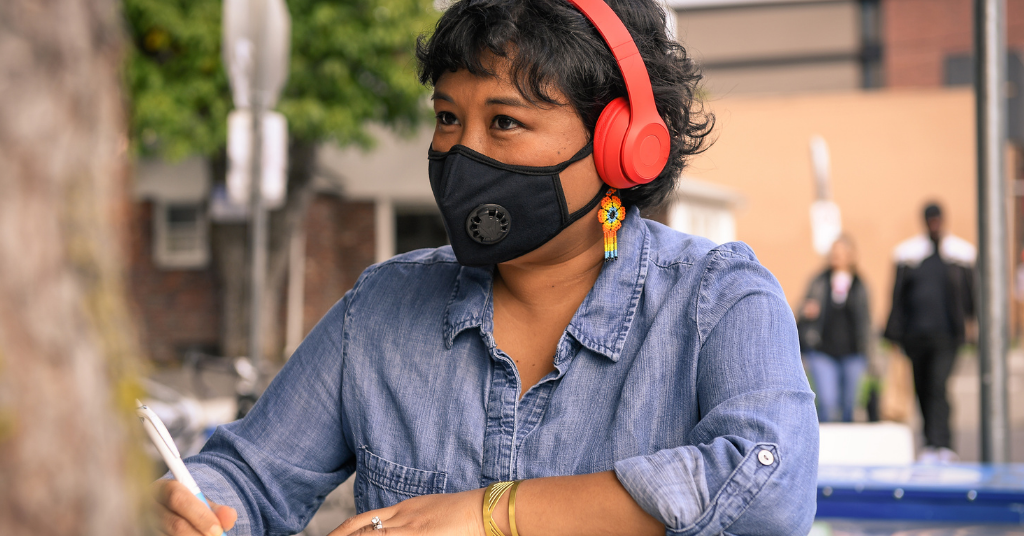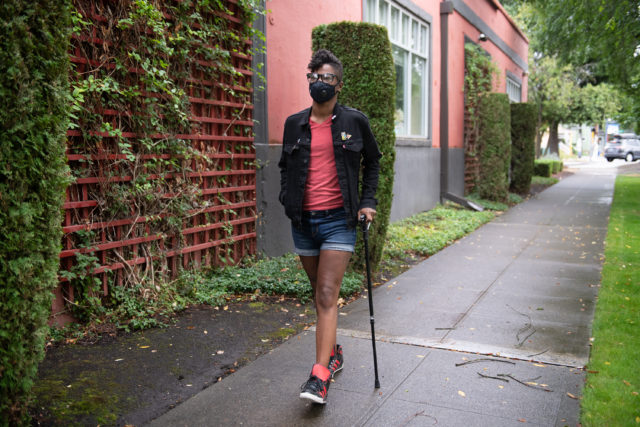
COVID-19 and people with disability
15 December 2023
Robyn Kruk AO
Chair COVID-19 Response Inquiry Panel
Delivered via online portal submission
Dear Ms Kruk
We welcome the opportunity to make this submission to the Commonwealth Government’s COVID-19 Response Inquiry. People with Disability Australia (PWDA) is Australia’s peak cross-disability Disability Representative Organisation and is funded by the Australian Government to represent the 1 in 6 Australians with disability nationally. Our organisation is made up of, and led by, people with disability.
This submission will highlight how we can better respond to the needs of people with disability both during and after any future pandemic(s). Our submission is informed by our recent COVID-19 projects, which include:
- Research involving extensive consultations with people with disability across Australia in 2023 (see our research summary report)
- PWDA’s 2022 ‘Pandemic Project’, which examined the pandemic’s impact on the mental health and wellbeing of women with disability.
While the Commonwealth Government may not have direct control over all recommended measures, it should take a leadership role in developing nationally consistent frameworks and encouraging states and territories to take relevant actions.
Responding during a pandemic
As a signatory to the United Nations Convention on the Rights of Persons with Disabilities (CRPD), Australia is obliged to take ‘all necessary measures to ensure the protection and safety’ of people with disability in situations of risk and disaster. It is important to examine ‘lessons’ learned from the COVID-19 pandemic to ensure this obligation is upheld in theevent of any future pandemic(s).
In 2020, the Disability Royal Commission examined people with disability’s experiences during the pandemic and made the following recommendations about future pandemics:
- Recommendation 2 (consultation with people with disability)
- Recommendation 3 (funding for people with disability to participate in consultations)
- Recommendation 13 (additional funding for individual and systemic advocacy)
- Recommendation 18 (priority access to personal protective equipment and testing procedures for disability support workers).
As these recommendations have been accepted by the Government, we recommend that:
Recommendation 1 – The Inquiry Panel reviews the Disability Royal Commission’s Public Hearing 5 report recommendations 2, 3, 13 and 18 and identifies which, if any, further steps the Australian Government should make to implement the recommendations, with particular reference to Australia’s Disability Strategy’s Emergency Management Targeted Action Plan.
Responding ‘after’ a pandemic
The pandemic has not ended for people with disability. However, in this ‘post-pandemic world’, Australia remains obliged to uphold our CRPD rights, including the right to be included in the community (Article 19) and the right to enjoy the highest attainable standard of health (Article 25).

Extensive consultation with our members in 2023 revealed that 39% of people with disability feel unsafe and only leave the house when they must, and 25% of people with disability have avoided attending health services. In September 2023, we released a Position Statement outlining what changes people with disability want in the ‘post pandemic’ world, to ensure our CRPD rights are upheld. The position statement’s recommendations are repeated below, and we urge the Government to work with state and territory governments to implement, or directly implement, the following:
Recommendation 2 – Mandate up-to-date vaccinations for all workers in high-risk settings including but not limited to hospitals, medical services, disability services and aged care homes, and other settings where workers support people with disability.
Recommendation 3 – Develop national indoor air quality standards, with consideration given to high-risk settings, including hospitals, medical services, disability group homes, aged care homes, schools and workplaces.
Recommendation 4 – Mandate that people who have tested positive for COVID-19 should not be allowed to visit disability group homes and aged-care homes until they are no longer infectious.
Recommendation 5 – Mandate mask-wearing in all health and hospital settings.
Recommendation 6 – Implement a traffic light advice mechanism to signal the current level of COVID-19 risk in the community in each state and territory.
Recommendation 7 – Regulate the tertiary education sector to ensure that people who have disability and/or are immunocompromised can choose to attend their course online, in-person or by a combination of both delivery modes.
In addition, we note that people with disability have benefited greatly from access to telehealth during and ‘after’ the pandemic, and recommend that:
Recommendation 8 – The Government implements the recommendations in our submission to the Draft Report of the Post-Implementation Review of Telehealth MBS Items, including exempting people with disability and those who are immunocompromised from the ‘Existing Relationship Requirement’, to enable access to telehealth regardless of whether the person has attended the medical practice in person in the past 12 months.
If you would like to discuss our submission, please contact my Senior Manager of Policy, Mx Giancarlo de Vera via email at giancarlod@pwd.org.au or on 0413 135 731.
Yours sincerely
Carolyn Hodge
Acting Chief Executive Officer
People with Disability Australia
